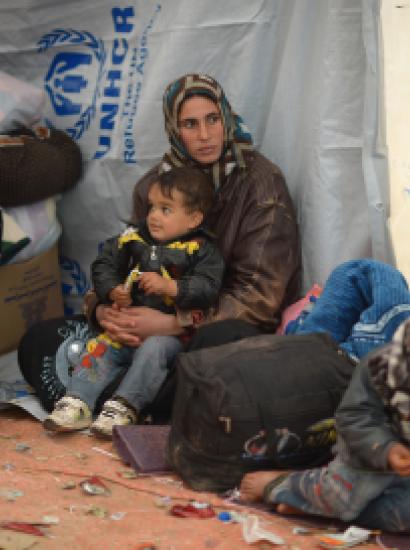US diplomacy has lost the latest round in the Syria showdown. Just as the Assad regime embraced the proposal to place its chemical weapons under international control, it restarted its bombing campaign against rebel positions in Damascus. The negotiations over the WMDs allow Syria to stave off American missiles, while providing cover for its war against the rebels. Assad notoriously succeeded in dragging out the investigation into the assassination of Lebanese Prime Minister Rafik Hariri for years, and he will now be able to play the same waiting game over the weapons.
There are numerous reasons for the US to take a firm stand in Syria, and even President Obama has articulated some of them clearly. The use of chemical warfare threatens national security because, if unpunished, it becomes normalized, and gas may eventually be used against American soldiers. The turmoil in Syria threatens important allies: NATO member Turkey, Jordan that is buckling under a wave of Syrian refugees, and Israel. Furthermore Assad’s gains will amplify Iranian influence: it is surely in the US national interest to degrade the power of an enemy such as the regime in Tehran.
Add to these strategic rationales the humanitarian arguments regarding both the gas victims and the much larger number of other dead and displaced. Recall especially the origins of the Syrian rebellion, the aspiration for democracy—before the Islamists arrived. In his speech to the nation, President Obama himself spoke of “the Syrian opposition we work with,” and its desire “to live in peace, with dignity and freedom.
If only we were working with that opposition! In fact, the Obama administration has coldly ignored the opposition’s pleas for help. After long delays, Washington eventually promised some material support, but the amounts are insignificant if measured against the support Assad receives from Russia and Iran, and delivery has been excruciatingly late. Betrayal like that feeds the jihadist narrative that the West does not care about Muslim suffering. Obama’s temporizing will therefore result in increased terrorist recruiting among the angry youth of the Arab world as well as in the immigrant ghettoes of Europe. Obama long ago called for Assad to go, and Obama drew a red line: the chasm between the soaring rhetoric and American indecision undermines the credibility of the president and the stature of the US as a great power.
None of this is a surprise. Obama has spent his presidency arguing against the projection of military force while cutting the military budget. He has belittled the terrorist threat—Boston was the result—and he has turned a deaf ear to the cries of democracy movements overseas, most notably in Iran. He has demeaned the notion of American exceptionalism, only to return to it bizarrely at the close of his speech. He has squandered his years in office undercutting American power while pursuing a policy of retreat. No wonder he finds so little support, at home or abroad, in this moment of crisis.
Although an attack on Syria would be warranted in principle, this half-hearted President is not the right leader to wage a war, and the underfunded military should not be put in harm’s way without appropriate support, both budgetary and political. These are legitimate grounds to hold back at this point from the missile attacks on Syria which would constitute an act of war, with unpredictable consequences necessarily shrouded in fog. Once the violence of an attack begins, there is no guarantee that it will remain limited, despite presidential assurances.
Yet missile attacks in response to Assad’s deployment of chemical weapons are not the only option for American policy. Instead of focusing on the prospective negotiations over Syria’s WMDs, we should face the real violence on the ground. Instead of distractions, we need a strategy for an outcome in Damascus that is in the US national interest. The Syrian civil war rages on because the Assad regime benefits from extensive arms shipments from Russia. In order to stay Assad’s hand, the West should provide the Free Syrian Army with a corresponding level of support. Moscow and Damascus should pay a military price for their alliance. While today’s timid Washington is unlikely to affirm the goal of regime change in Damascus, it could yet strengthen the rebels sufficiently to drive Assad to a peace conference. We need a real political goal such as this, if we are going to engage. Basing foreign policy on an abstract defense of a legal norm, the prohibition of chemical weapons, is not sufficient. A nation does not go into battle to defend a norm but rather to defeat its enemy.
Russell Berman is the Walter A. Haas Professor in the Humanities, Professor of Comparative Literature and German Studies at Stanford University, and a senior fellow at the Hoover Institution
















